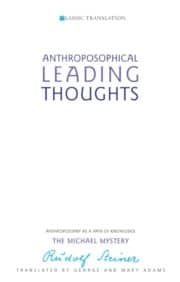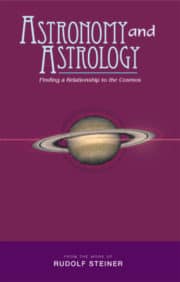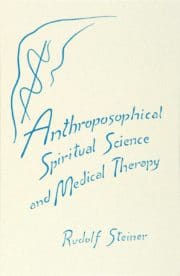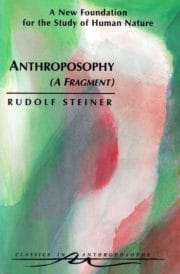The Tension Between East and West
10 lectures, Vienna, June 1-11, 1922 (CW 83)
This challenging set of lectures attempts to lift the veil from modern social and spiritual problems as experienced in the contrasts between East and West.
By ascribing to human thinking only a shadowy, subjective validity, modern science tries to invalidate the very faculty that gives us our human dignity. At the same time, however, this “unreality” of thought images makes possible an inner freedom that scientific doctrine tends to deny in principle. The need arises from these contradictions to extend the limits of ordinary scientific thinking to new investigative faculties.
In part one, “Anthroposophy and the Sciences,” Rudolf Steiner explains that this can be achieved in a healthy way through two kinds of meditative exercises, very different in character from yoga and asceticism and other older paths to higher knowledge. These disciplines lead to the discovery of a paradoxical truth: “If you would know yourself, look into the world. If you would know the world, look into your self.”
The spiritual-scientific philosophy thus presented provides a framework within which the second half of the book (“Anthroposophy and Sociology”) considers how a healthy social life can be understood and shaped. Today the old social instincts of humanity have grown uncertain, and the rational intellect is proving unsuited to comprehend and foster a humane social life.
While admitting that we are only beginning to discover the right relationship between individual and community, Steiner describes how a conscious spiritual life is able to give the same social certainties as did the earlier “instictive” life. He then explains how we might find a way from our highly developed sense of personal self into the worldwide social organism.
This volume is a translation of Westliche und östliche Weltgegensätzlichkeit – Wege zu ihre Verständigung durch Anthroposophie.
About the Author
Rudolf Steiner (1861–1925) was born in the small village of Kraljevec, Austro-Hungarian Empire (now in Croatia), where he grew up. As a young man, he lived in Weimar and Berlin, where he became a well-published scientific, literary, and philosophical scholar, known especially for his work with Goethe’s scientific writings. At the beginning of the twentieth century, he began to develop his early philosophical principles into an approach to systematic research into psychological and spiritual phenomena. Formally beginning his spiritual teaching career under the auspices of the Theosophical Society, Steiner came to use the term Anthroposophy (and spiritual science) for his philosophy, spiritual research, and findings. The influence of Steiner’s multifaceted genius has led to innovative and holistic approaches in medicine, various therapies, philosophy, religious renewal, Waldorf education, education for special needs, threefold economics, biodynamic agriculture, Goethean science, architecture, and the arts of drama, speech, and eurythmy. In 1924, Rudolf Steiner founded the General Anthroposophical Society, which today has branches throughout the world. He died in Dornach, Switzerland.












Reviews
There are no reviews yet